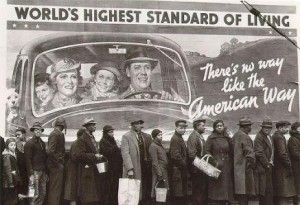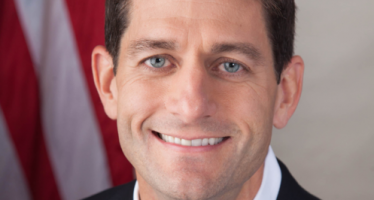California unemployment third worst at 10.7 percent
By John Seiler
In numbers released this morning by the Bureau of Labor Statistics, California’s unemployment in July remained the same as in June, 10.7 percent. But that was an improvement from the 11.9 percent of July 2011.
The U.S. unemployment rate of 8.3 percent for July 2012 also was the same as the previous month. The BLS reported, “Regional and state unemployment rates were generally little changed or slightly higher in July. Forty-four states recorded unemployment rate increases, two states and the District of Columbia posted rate decreases, and four states had no change.”
The economy seems in stagnation mode in the runup to the election, with employers waiting to see which politicians voters choose on Nov. 6, and what policies — despite the promises made on the campaign hustings — are implemented in January.
This is more evidence that the U.S. economic “recovery,” if it can be called that, is the slowest since World War II. Reported the Christian Science Monitor, “Since World War II, 10 U.S. recessions have been followed by a recovery that lasted at least three years. An Associated Press analysis shows that by just about any measure, the one that began in June 2009 is the weakest.
“The ugliness goes well beyond unemployment, which at 8.3 percent is the highest this long after a recession ended.”
Empty cradles
The weak recovery extends even to birth rates. According to the Economist:
“For years, America was unusual among rich countries in having a relatively high TFR of around 2.1, the so-called “replacement rate”, at which a population stabilises over the long term. European countries were typically below that rate, sometimes far below it.
“So it comes as something of a shock to discover that in 2011 America’s fertility rate was below replacement level and below that of some large European countries. The American rate is now 1.9 and falling. France’s is 2.0 and stable. The rate in England is 2.0 and rising slightly.
“American fertility reached its recent peak in 2007; its fall has coincided with the economic crisis that began at the end of that year. Recession seems to have reduced fertility through at least two channels. First, migrants often cannot find work and go back home. Since they tend to have slightly larger families than native-born citizens, this reduces fertility. It has happened in Spain in the past two years, and may be happening in America as Mexicans leave.
“Second, loss of income, compounded by the housing crisis, is causing young people to postpone marriage, the setting up of new homes, and having children.”
It’s not much of a “recovery” if people are too depressed to have kids.
California holding America back
California used to lead America out of recessions, its gigantic, high-tech industries being the Lead locomotive that pulled the train up the mountain. Now, we’re the caboose that follows everything else.
Meanwhile, the state political establishment is obsessed with placing even more burdens on the state with a passel of tax increases, beginning with a tax on multistate businesses that passed the Assembly. Next up are three tax increases on the November ballot. And it looks like the biased, pro-tax increase labels put on them by leftist Attorney General Kamala Harris are goosing the initiatives in the polls, and perhaps on election day.
Well, why not? California needs to kill even more jobs. Our 10.7 percent unemployment rate is still in third place, behind Rhode Island at 10.8 percent and Nevada at 12 percent.
We like to be No. 1.
Related Articles
Groan: Dem-driven attacks on Filner depicted as ugly GOP coup
July 15, 2013 By Chris Reed At 11 a.m. today, there will be another press conference by the three longtime
CA mayor’s car vandalized; all assume it was a cop or firefighter
On its surface a Tuesday story in the San Luis Obispo Tribune is a funny, mordant comment on small-town politics
Paul Ryan budget deal begs question: Why Republicans?
January will begin in earnest the California mid-term election cycle. Although Gov. Jerry Brown’s seat likely is secure, assuming he’s





